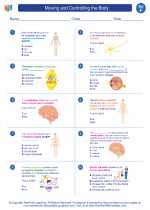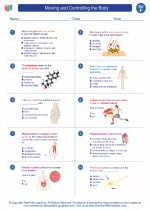Immune System
The immune system is a complex network of cells, tissues, and organs that work together to defend the body against harmful pathogens such as bacteria, viruses, and parasites. It also plays a crucial role in recognizing and removing abnormal cells that may develop into cancer. The immune system is essential for maintaining overall health and preventing illness.
Key Components of the Immune System
- White Blood Cells: These are the primary cells of the immune system and include different types such as T cells, B cells, and natural killer cells.
- Lymphatic System: This network of vessels and organs, including the spleen and lymph nodes, helps carry and clear the fluid that contains white blood cells.
- Antibodies: These are proteins produced by the immune system to target and neutralize specific pathogens.
- Complement System: A group of proteins that work together to destroy invading microorganisms and promote inflammation.
- Bone Marrow: The site where blood cells, including those of the immune system, are produced.
How the Immune System Works
When the immune system encounters a foreign invader, it mounts a response to eliminate the threat. This response involves various mechanisms, including:
- Recognition: The immune system recognizes and identifies pathogens as foreign to the body.
- Activation: Once recognized, the immune system activates specific cells and proteins to target and eliminate the invader.
- Response: The immune response involves the release of chemicals, recruitment of additional immune cells, and production of antibodies to neutralize the pathogen.
- Memory: After the initial encounter, the immune system "remembers" the pathogen, allowing for a faster and more effective response upon subsequent exposure.
Disorders of the Immune System
Disorders of the immune system can lead to either an overactive immune response (resulting in allergies and autoimmune diseases) or an underactive immune response (increasing the risk of infections and certain cancers).
Study Guide
When studying the immune system, it's important to focus on understanding the different components, their functions, and how they work together to protect the body. Key topics to cover include:
- The role of white blood cells in immune defense
- Functions of the lymphatic system and its organs
- The production and action of antibodies
- The process of immune response and memory
- Common disorders of the immune system and their effects
It's also helpful to explore real-life examples and case studies to understand how the immune system responds to specific pathogens and diseases.
Remember to review and reinforce your understanding through quizzes, diagrams, and interactive activities to solidify your knowledge of this important topic.
By mastering the concepts of the immune system, you'll gain a deeper understanding of how our bodies defend against illness and maintain overall health.
.◂Science Worksheets and Study Guides Sixth Grade. Moving and Controlling the Body

 Worksheet/Answer key
Worksheet/Answer key
 Worksheet/Answer key
Worksheet/Answer key
 Vocabulary/Answer key
Vocabulary/Answer key
 Vocabulary/Answer key
Vocabulary/Answer key
 Vocabulary/Answer key
Vocabulary/Answer key
